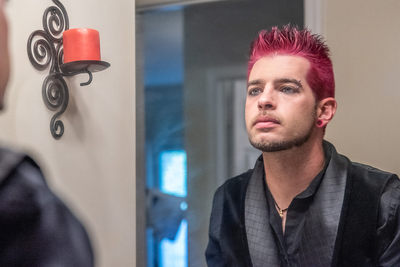
While the opioid epidemic is rampant in the United States, members of the LGBTQ community are uniquely at risk. If you or any of your loved ones are struggling with opioid use disorder, here’s what you need to know.
The United States is in the throes of an opioid epidemic. While opioid misuse and related overdoses can happen to anyone, opioid use is especially high among the LGBTQ population. Here’s a closer look at the problem, its causes, and possible solutions, as discussed in a 2018 report from the National LGBT Health Education Center.
Eye-Opening Statistics
The US Department of Health and Human Services recently shared some eye-opening statistics. In the year 2017 alone, a staggering 11.4 million people misused prescription opioids. All in all, more than 130 people die every day in this country from opioid-related drug overdoses.
While these numbers are troubling in and of themselves, they’re especially alarming for members of the LGBTQ community and the people who love them. Why? Because this population is disproportionately affected by substance use disorders (SUDs).
Research indicates that LGB men and women of all ages were not only significantly more likely to misuse prescription pain meds, but they were also nearly three times more likely to suffer from opioid use disorder than their heterosexual peers. While there’s limited research regarding transgender individuals and opioid use, the evidence does suggest the same phenomenon among this group of people.
Making Sense of the Problem
According to experts, the higher prevalence of SUDs, including opioid use disorder, is linked to one overarching theme: minority stress.
The report explains:
“Starting at a young age, LGBTQ people live with everyday discrimination, marginalization, and victimization based on their sexual and gender minority statuses. The stress caused by such high levels of external stigma can disrupt an individual’s psychological processes, such as the ability to cope adaptively, regulate emotions, and achieve positive interpersonal relationships. External stigma can become internalized, leading to identity concealment, self-hate, feelings of worthlessness, and fear of rejection. To escape or mute these challenging emotions, some LGBTQ people turn to opioids and other substances that provide a sense of euphoria or relief.”
Unfortunately, this can lead to other mental and physical health consequences as well, including everything from dependence and addiction to HIV and other sexually transmitted diseases.
Then there’s the fact that even in medical settings, LGBTQ people have a disproportionately higher rate of exposure to opioids. Transgender people, for example, are often prescribed opioids for pain management following gender affirmation surgery, as are older people living with HIV. As a result, they’re at further increased risk for opioid use disorder.

What does he see when he looks in the mirror? The right treatment promotes acceptance and a path to recovery.
Getting the Help They Need
Medication-assisted therapy (MAT) combined with counseling and behavioral health interventions are recommended for all patients struggling with opioid use disorder.
However, because of the unique, complex, and multi-factored nature of addiction in LGBTQ people, certain additional concerns and considerations must also be addressed. In addition to questions like how common medications used during MAT, such as methadone and buprenorphine, might interact with hormone and antiretroviral therapies, treatment should also consider what behavioral health interventions have been proven to work best for LGBTQ individuals, along with what adaptations should be made from standard treatments.
While there is still work to be done to curb the opioid use disorder, both at large and within the LGBTQ community, one thing is clear. Finding a treatment program that is equipped to manage the unique needs of LGBTQ individuals can make all the difference. Enter Harris House, a leading St. Louis area rehab center. Contact us today to learn more about our targeted treatment programs for LGBTQ opioid use disorder.







